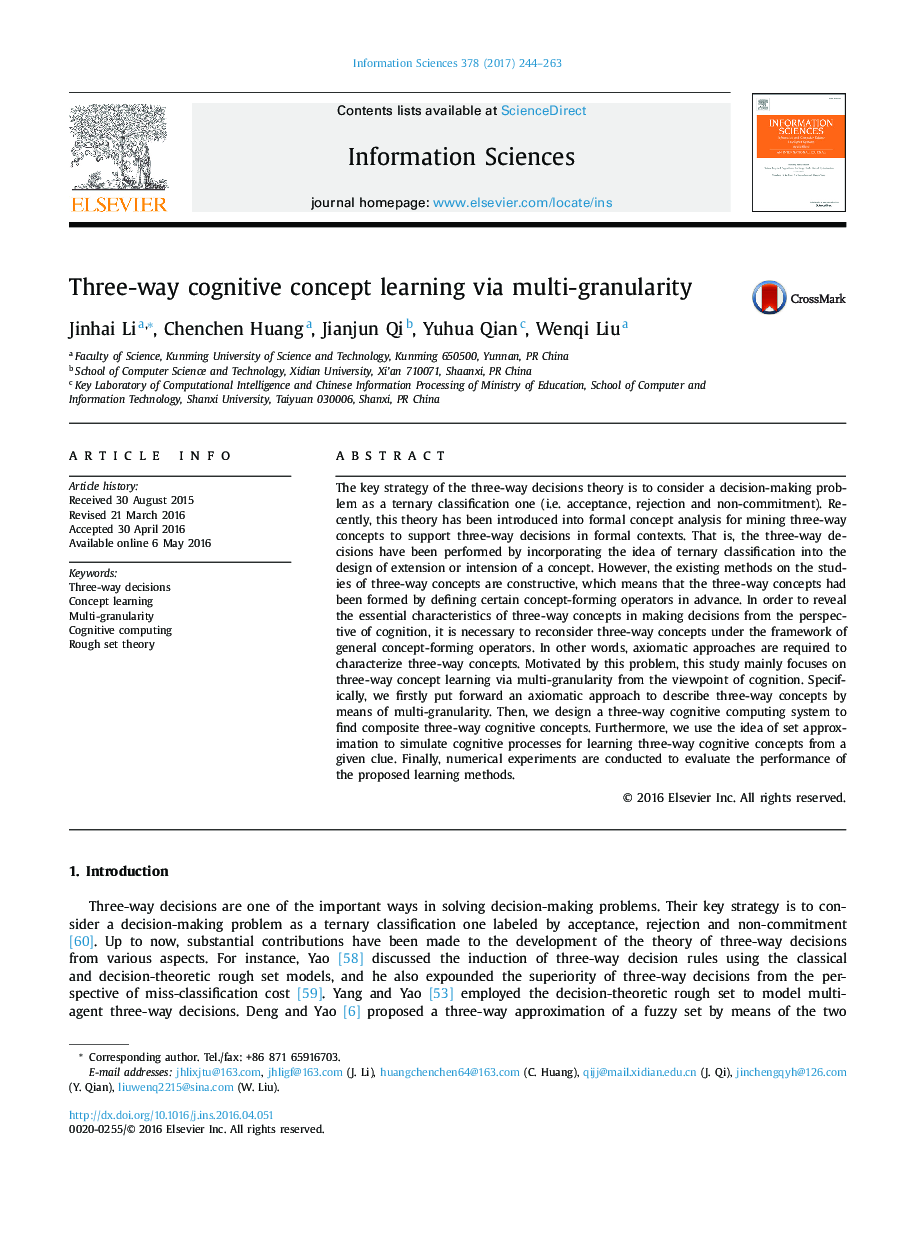| Article ID | Journal | Published Year | Pages | File Type |
|---|---|---|---|---|
| 4944870 | Information Sciences | 2017 | 20 Pages |
Abstract
The key strategy of the three-way decisions theory is to consider a decision-making problem as a ternary classification one (i.e. acceptance, rejection and non-commitment). Recently, this theory has been introduced into formal concept analysis for mining three-way concepts to support three-way decisions in formal contexts. That is, the three-way decisions have been performed by incorporating the idea of ternary classification into the design of extension or intension of a concept. However, the existing methods on the studies of three-way concepts are constructive, which means that the three-way concepts had been formed by defining certain concept-forming operators in advance. In order to reveal the essential characteristics of three-way concepts in making decisions from the perspective of cognition, it is necessary to reconsider three-way concepts under the framework of general concept-forming operators. In other words, axiomatic approaches are required to characterize three-way concepts. Motivated by this problem, this study mainly focuses on three-way concept learning via multi-granularity from the viewpoint of cognition. Specifically, we firstly put forward an axiomatic approach to describe three-way concepts by means of multi-granularity. Then, we design a three-way cognitive computing system to find composite three-way cognitive concepts. Furthermore, we use the idea of set approximation to simulate cognitive processes for learning three-way cognitive concepts from a given clue. Finally, numerical experiments are conducted to evaluate the performance of the proposed learning methods.
Related Topics
Physical Sciences and Engineering
Computer Science
Artificial Intelligence
Authors
Jinhai Li, Chenchen Huang, Jianjun Qi, Yuhua Qian, Wenqi Liu,
